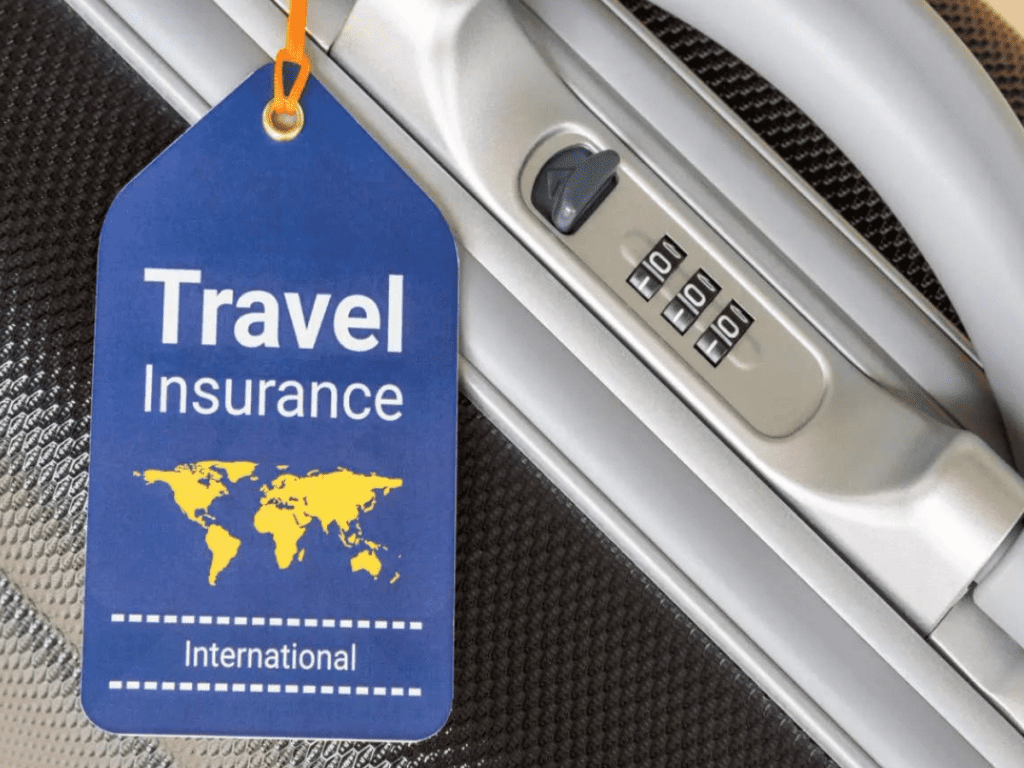Introduction
Traveling is often seen as an escape from routine life. Whether it’s an adventure-packed expedition, a relaxing beach vacation, or a business trip, most people plan every detail—from flights to hotel bookings and sightseeing. Yet, one essential aspect often overlooked is travel insurance. Many travelers buy it as a last-minute formality or skip it altogether, assuming it’s unnecessary. However, when things go wrong—whether during an extreme sport or a sudden medical emergency—having the right travel insurance can mean the difference between safety and crisis.
The Expanding Scope of Modern Travel Insurance
Traditional travel insurance primarily covered trip cancellations, lost baggage, or flight delays. But the needs of modern travelers have evolved. Today, travel insurance policies include coverage for adventure sports, high-risk destinations, medical evacuations, emergency repatriation, and even crisis response during natural disasters or civil unrest.
The travel insurance industry has adapted to meet these diverse risks, providing coverage that goes far beyond just lost luggage. Whether you’re trekking through the Himalayas, diving in remote coral reefs, or attending a corporate meeting in politically unstable regions, specialized policies now exist to protect you.
The Rise of Adventure Tourism: Why Basic Insurance Isn’t Enough
Adventure tourism has surged in popularity. Travelers now frequently engage in high-risk activities like bungee jumping, skydiving, scuba diving, mountaineering, and paragliding. Unfortunately, standard travel insurance policies often exclude such activities from coverage.
Imagine fracturing your leg while rock climbing in a remote mountain village. Without adventure sports coverage, not only will your medical bills go unpaid, but you could also face exorbitant costs for mountain rescue, helicopter evacuation, or hospitalization abroad.
Many insurers now offer add-ons or special policies to cover extreme sports. These plans typically cover emergency rescue, medical treatments, and even search operations in inaccessible locations. For avid adventure travelers, opting for these policies isn’t just wise—it’s essential.
Medical Emergencies Abroad: The Reality Check Most Travelers Ignore
One of the most crucial yet underestimated aspects of travel insurance is medical coverage. Falling ill or getting injured in a foreign country is more common than people think. Food poisoning, road accidents, tropical diseases, or minor injuries can quickly escalate into major health emergencies.
Many countries require upfront payment before providing medical care to foreigners. Even minor treatments can cost hundreds of dollars, and hospitalization can run into thousands. In more serious situations, where specialized treatment isn’t available locally, medical evacuation to your home country may be the only option. This evacuation alone can cost tens of thousands of dollars, depending on distance and medical needs.
Medical travel insurance covers doctor visits, hospital stays, medications, surgeries, and even emergency dental procedures. It also offers 24/7 medical assistance hotlines to help you navigate healthcare in a foreign country, including language support and doctor referrals.
Medical Evacuations and Repatriation: The Lifeline You Don’t Want to Ignore
Few travelers realize how expensive and logistically complex a medical evacuation can be. If you’re seriously injured or fall gravely ill in a location without suitable medical facilities, you may need to be airlifted to the nearest capable hospital or even repatriated back home.
Medical evacuation insurance ensures that you won’t face these costs alone. This coverage handles air ambulances, medically equipped flights, and ground transportation from the hospital to your home or another medical facility. It also coordinates with healthcare providers to ensure your medical needs are met en route.
Repatriation coverage goes a step further, including arrangements for the return of mortal remains in unfortunate cases of death while abroad. Without this coverage, grieving families may face not only emotional pain but also complicated and expensive repatriation processes.
Coverage for Natural Disasters: When Mother Nature Strikes
Natural disasters like earthquakes, tsunamis, floods, and hurricanes can happen without warning. If a disaster strikes while you’re traveling, it can leave you stranded without accommodation, transportation, or basic necessities.
Some comprehensive travel insurance policies offer natural disaster coverage, reimbursing expenses for evacuation, new accommodation, or flight changes. They also assist in emergency relocation if your destination becomes uninhabitable or unsafe due to natural catastrophes.
For travelers heading to regions with known risks of such events, reviewing the policy’s natural disaster clause is vital. It could be the safety net that gets you home when airlines cancel flights and hotels close their doors.
Political Unrest and Terrorism: A Growing Concern for International Travelers
Political instability, riots, civil unrest, or terrorist attacks can suddenly erupt, disrupting travel plans and putting personal safety at risk. Business travelers and tourists alike have found themselves caught in cities under curfew or experiencing sudden violence.
Some advanced travel insurance plans offer coverage for trip cancellation, evacuation, and emergency accommodation in such situations. Crisis response teams affiliated with insurers can guide travelers to safe locations, arrange emergency flights, and provide on-the-ground support until the danger subsides.
Before traveling to regions with political tension, it’s essential to check whether your policy includes coverage for political unrest or terrorism-related incidents. Ignoring this could leave you vulnerable in rapidly changing situations.
Trip Cancellations, Delays, and Interruptions: Financial Protection for the Unexpected
Not every travel mishap involves danger. Sometimes, unexpected events like illness before departure, family emergencies, or sudden work obligations force you to cancel or shorten your trip. Without travel insurance, you could lose non-refundable expenses like flight tickets, hotel bookings, and tour packages.
Trip cancellation and interruption coverage helps recover these costs. It also covers expenses related to delayed flights, missed connections, or forced overnight stays due to travel disruptions.
In case your luggage is delayed or lost, this coverage can reimburse costs for essential purchases like clothing and toiletries until your belongings are returned.
Coverage for Lost, Stolen, or Damaged Belongings
Travel involves constant movement—flights, trains, taxis, hotels—all of which increase the risk of losing your belongings. Theft or damage to luggage, electronics, passports, or personal documents is another stressful travel reality.
Many travel insurance plans offer baggage and personal belongings coverage. This includes reimbursement for lost or stolen luggage, damage due to mishandling, or loss of valuables like cameras and laptops. Some plans even cover the cost of replacing lost travel documents, helping you avoid bureaucratic nightmares when far from home.
For travelers carrying expensive equipment like photography gear, musical instruments, or sports equipment, it’s advisable to check for high-value item limits in the policy or purchase additional coverage if needed.
Coverage for COVID-19 and Other Emerging Health Risks
The global pandemic dramatically reshaped how travelers view health-related insurance coverage. Today, many travel insurance providers offer COVID-19-specific coverage, including trip cancellations due to infection, quarantine costs, and medical treatment abroad.
This section of coverage now often extends to other communicable diseases that may pose travel risks. With frequent outbreaks of illnesses like dengue fever, malaria, or even region-specific viruses, travel insurance acts as a financial shield against health-related disruptions.
Before traveling, check if your destination has special COVID-19 or vaccination entry requirements, and ensure your insurance aligns with these policies.
Personal Liability Coverage: Protection from Legal Trouble Abroad
Accidents don’t just affect your health—they can create legal liabilities too. If you accidentally injure someone or cause damage to property while traveling, you may face lawsuits or compensation claims.
Personal liability coverage within travel insurance helps protect against these situations. It covers legal fees, compensation payouts, and even settlement costs up to a specified limit. Whether it’s a minor scooter accident or accidental property damage in your hotel, this coverage provides legal and financial assistance.
Travel Assistance Services: Help When You Need It Most
Beyond financial coverage, many travel insurance plans offer practical assistance services. These can include 24/7 helplines for medical emergencies, language translation support, lost passport recovery assistance, and coordination with local authorities during crises.
If you’re stranded at an airport, dealing with embassy officials, or requiring a hospital referral, these assistance services become your on-the-ground support team. They provide quick guidance, helping you make informed decisions when under stress.
Specialized Coverage for Unique Travelers
Different types of travelers face different risks. Students studying abroad, senior citizens on leisure trips, pregnant women, solo travelers, and digital nomads all require tailored coverage.
For example, students may need coverage for tuition reimbursement in case of medical withdrawal. Pregnant women may require maternity-related medical coverage. Senior citizens might need enhanced medical limits due to pre-existing conditions.
If you fall into a unique traveler category, it’s worth consulting with your insurance provider to select a policy that covers your specific needs.
Choosing the Right Travel Insurance: Factors to Consider
Given the wide variety of coverage options available, choosing the right travel insurance can feel overwhelming. Here are key factors to consider:
- Destination: Understand the risks associated with your destination. Is it prone to political unrest or natural disasters? Are healthcare facilities easily accessible?
- Activities Planned: If your trip involves high-risk activities like skiing, scuba diving, or hiking, ensure your policy includes adventure sports coverage.
- Duration of Trip: Longer trips may require extended coverage periods. Some insurers offer multi-trip annual plans for frequent travelers.
- Health Status: Disclose pre-existing medical conditions. Many insurers offer add-ons to cover such conditions with prior approval.
- Valuables Carried: If you’re carrying expensive electronics or equipment, check baggage limits and consider additional coverage for high-value items.
- Policy Exclusions: Always read the fine print. Understand what’s not covered to avoid surprises later.
Real-Life Lessons: Stories That Highlight the Importance of Travel Insurance
Stories abound of travelers who’ve been saved from financial ruin thanks to travel insurance. Whether it’s a backpacker airlifted after a severe injury, a family evacuated during political violence, or a couple receiving compensation for a canceled honeymoon due to illness, these real-life situations underscore how vital travel insurance can be.
Conversely, many travelers have faced devastating out-of-pocket expenses simply because they assumed nothing could go wrong or believed insurance was an unnecessary cost.
Conclusion: Travel Insurance as a Non-Negotiable Part of Trip Planning
In an increasingly unpredictable world, travel insurance is no longer a luxury—it’s a necessity. From adventure sports coverage to medical evacuation support and from trip cancellation protection to crisis assistance in foreign lands, today’s travel insurance offers comprehensive solutions to a wide range of risks.
As you plan your next journey, factor in the cost of travel insurance as part of your essential expenses. It’s the safety net you hope never to use but will be profoundly grateful for if you do.
Don’t let unforeseen events ruin your travel dreams. Equip yourself with the right protection and travel with peace of mind, knowing you’re prepared for whatever the journey brings.

